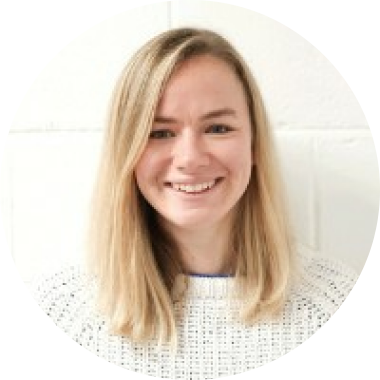Who says disabled children can’t do any sport they want?
Who says? - Activity Alliance’s exciting campaign is back and this time it’s all about disabled children and young people. Who says? phase two focuses on changing attitudes towards disabled children and young people in sport and activity. Today, national charity, Access Sport, join us in calling time on negative perceptions about disability, inclusion, and sport. Project Manager, Lizzie Edgecombe asks – Who says disabled children can’t do any sport they want?

For far too long disabled people have faced misconceptions and presumptions on what is and isn’t possible, including in sport. Activity Alliance wants to move conversations on, open people’s minds and shift out-dated views on disability.
Who says? empowers people, on and off the field of play, to challenge their own and others perceptions.
Visit the campaign page to watch our new Who says? films, access resources and guidance, and find out how you can be a part of the campaign on social media.
Access Sport Q&A with Lizzie Edgecombe
 Hi Lizzie, tell us about Access Sport and your approach to inclusion?
Hi Lizzie, tell us about Access Sport and your approach to inclusion?
Access Sport is a national charity working to make inclusion the norm in community sport and physical activity. We tackle the access barriers faced by disadvantaged and young disabled people, focusing on the causes of exclusion, not just the symptoms. We believe every sport can, and should, be inclusive to all members of the community.
How does Access Sport support young disabled people and families to be active?
Access Sport trains, equips, and supports community sports clubs, organisations, and volunteers to provide inclusive programmes to engage young disabled people and their families. We have two main ways of doing this.
Changing Places is our place based multi-sport work. We work in partnership with cities, Active Partnerships, and local authorities to embed disability inclusion into community sport for good. We currently have teams on the ground in London, Bristol, Oxford, and Manchester supporting these cities to become beacon examples of inclusion in sport and physical activity.
Changing Sports is our sport-specific multi-location work. This programme focuses on working with National Governing Bodies of sport to improve the disability inclusion within their sport. We have worked closely with England Hockey, British Cycling, and Basketball England to embed inclusion into all areas of the sport from participation to coaching and volunteering. As a result, in partnership with each NGB we have launched an inclusive programme to increase disabled people’s participation – Flyerz hockey, Wingz cycling, and Hoopz basketball.
How do you support young disabled people and their families to be active through your role?
As a Project Manager in the Disability Inclusion Team, my work focuses mostly on our Changing Places programme in Bristol. My aim is to make Bristol the best city for disability inclusive sport and physical activity, and then replicate that elsewhere. We want there to be genuine local choice for young disabled people to be active, so I work with as many different sports and activities as possible. This can be anything from boccia to basketball, fencing to frame running and cricket to climbing.
I support clubs with training, activation funding, local connections, volunteer recruitment, and sustainability planning so they can provide high quality opportunities for young people to be active for years to come. I’m also leading on a collaborative project called Ignite Bristol which will hopefully make it a lot easier for families and professionals to find out about all the amazing opportunities that are available.
What do you enjoy most about your role?
The people! It’s a privilege to work with such passionate, dedicated club leaders, volunteers, and partner organisations. Seeing the smiles on participants’ faces and gratefulness of parents is the biggest motivator of all.
So Lizzie, what does fairness for disabled people in sport and activity mean to you?
For me, fairness means it being easy for disabled people to participate in whatever sport or activity they want to, in a setting that suits their needs, close to their home.
Connecting back to our campaign, what would Access Sport’s who says statement be, and why is it important to change perception for young disabled people?
I would say – Who says disabled children can’t do any sport they want?
Young disabled children, and the adults they grow up to be, contribute so much to our world when they are included and treated fairly. By raising awareness and understanding of the social model of disability, and the disabling society we live in, we can start to address barriers and change perceptions. This will ensure every child, disabled and non-disabled, has an equal opportunity to fulfil their dreams.
Visit Access Sport website to find out more about their award-winning disability inclusion programme.
Photo credit: Access Sport